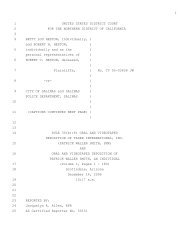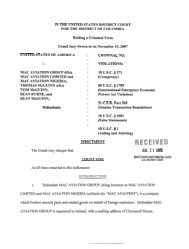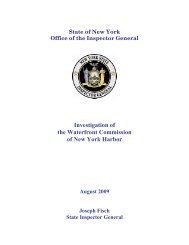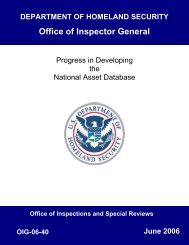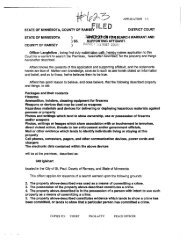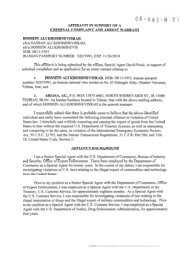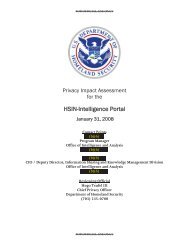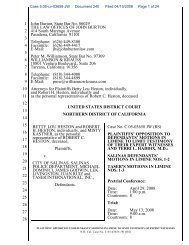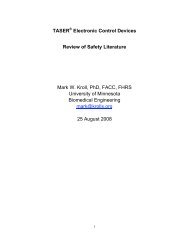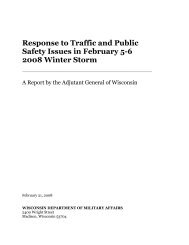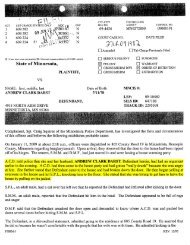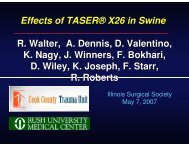04-473 - Garcetti v. Ceballos - Supreme Court of the United States
04-473 - Garcetti v. Ceballos - Supreme Court of the United States
04-473 - Garcetti v. Ceballos - Supreme Court of the United States
Create successful ePaper yourself
Turn your PDF publications into a flip-book with our unique Google optimized e-Paper software.
Cite as: 547 U. S. ____ (2006)5Opinion <strong>of</strong> <strong>the</strong> <strong>Court</strong>view, “when public employees speak in <strong>the</strong> course <strong>of</strong> carryingout <strong>the</strong>ir routine, required employment obligations,<strong>the</strong>y have no personal interest in <strong>the</strong> content <strong>of</strong> that speechthat gives rise to a First Amendment right.” Id., at 1189.We granted certiorari, 543 U. S. 1186 (2005), and wenow reverse.IIAs <strong>the</strong> <strong>Court</strong>’s decisions have noted, for many years “<strong>the</strong>unchallenged dogma was that a public employee had noright to object to conditions placed upon <strong>the</strong> terms <strong>of</strong>employment—including those which restricted <strong>the</strong> exercise<strong>of</strong> constitutional rights.” Connick, 461 U. S., at 143.That dogma has been qualified in important respects. Seeid., at 144–145. The <strong>Court</strong> has made clear that publicemployees do not surrender all <strong>the</strong>ir First Amendmentrights by reason <strong>of</strong> <strong>the</strong>ir employment. Ra<strong>the</strong>r, <strong>the</strong> FirstAmendment protects a public employee’s right, in certaincircumstances, to speak as a citizen addressing matters <strong>of</strong>public concern. See, e.g., Pickering, supra, at 568; Connick,supra, at 147; Rankin v. McPherson, 483 U. S. 378, 384(1987); <strong>United</strong> <strong>States</strong> v. Treasury Employees, 513 U. S.454, 466 (1995).Pickering provides a useful starting point in explaining<strong>the</strong> <strong>Court</strong>’s doctrine. There <strong>the</strong> relevant speech was ateacher’s letter to a local newspaper addressing issuesincluding <strong>the</strong> funding policies <strong>of</strong> his school board. 391U. S., at 566. “The problem in any case,” <strong>the</strong> <strong>Court</strong> stated,“is to arrive at a balance between <strong>the</strong> interests <strong>of</strong> <strong>the</strong>teacher, as a citizen, in commenting upon matters <strong>of</strong> publicconcern and <strong>the</strong> interest <strong>of</strong> <strong>the</strong> State, as an employer, inpromoting <strong>the</strong> efficiency <strong>of</strong> <strong>the</strong> public services it performsthrough its employees.” Id., at 568. The <strong>Court</strong> found <strong>the</strong>teacher’s speech “nei<strong>the</strong>r [was] shown nor can be presumedto have in any way ei<strong>the</strong>r impeded <strong>the</strong> teacher’sproper performance <strong>of</strong> his daily duties in <strong>the</strong> classroom or



